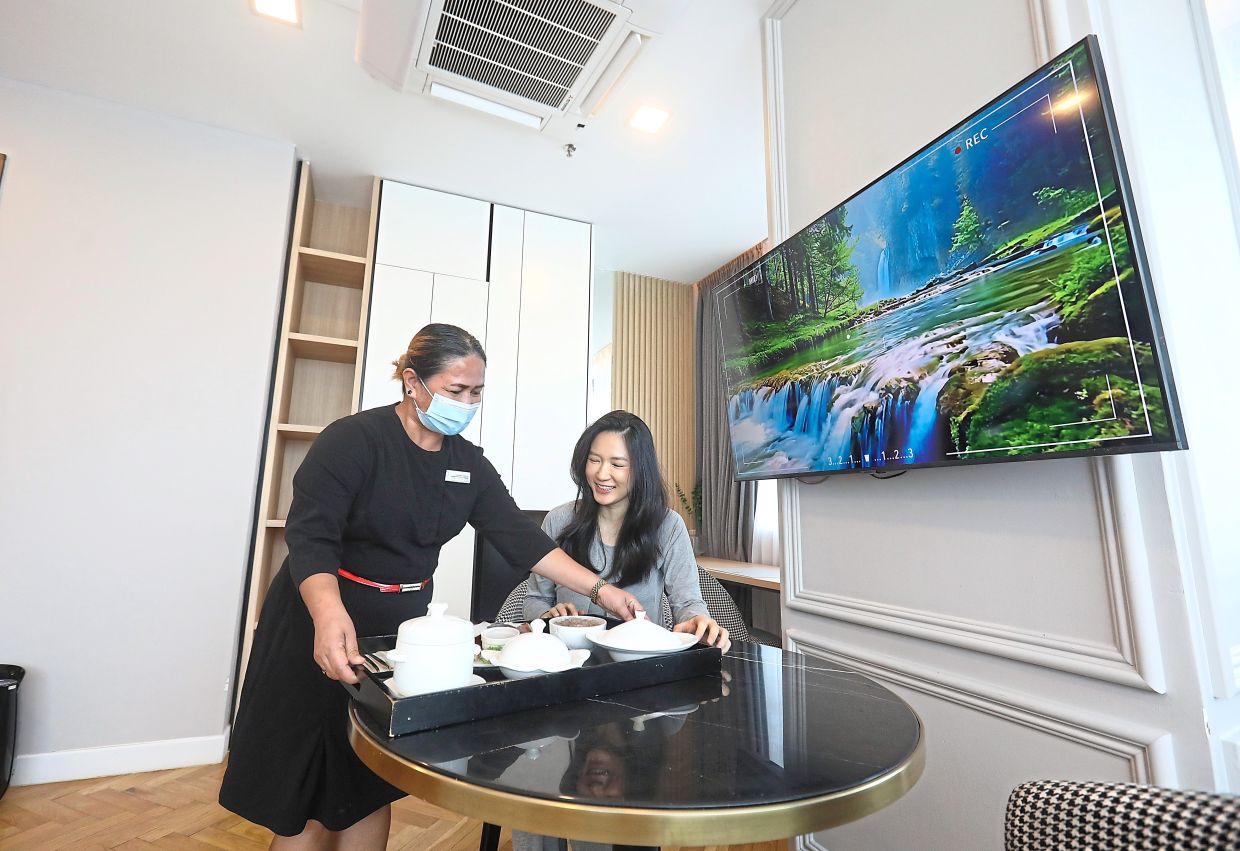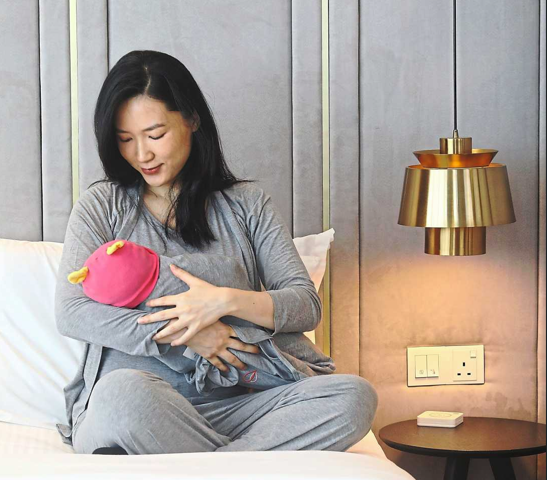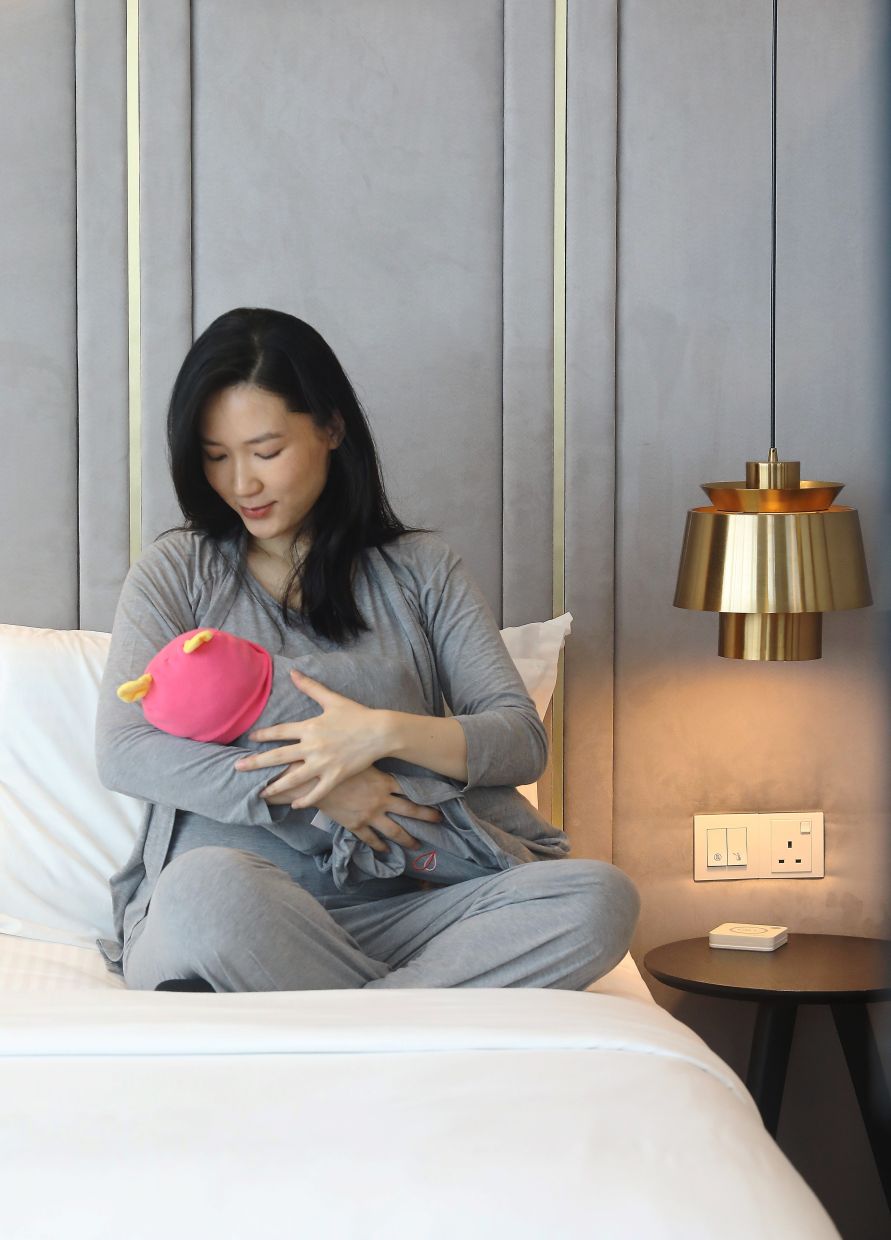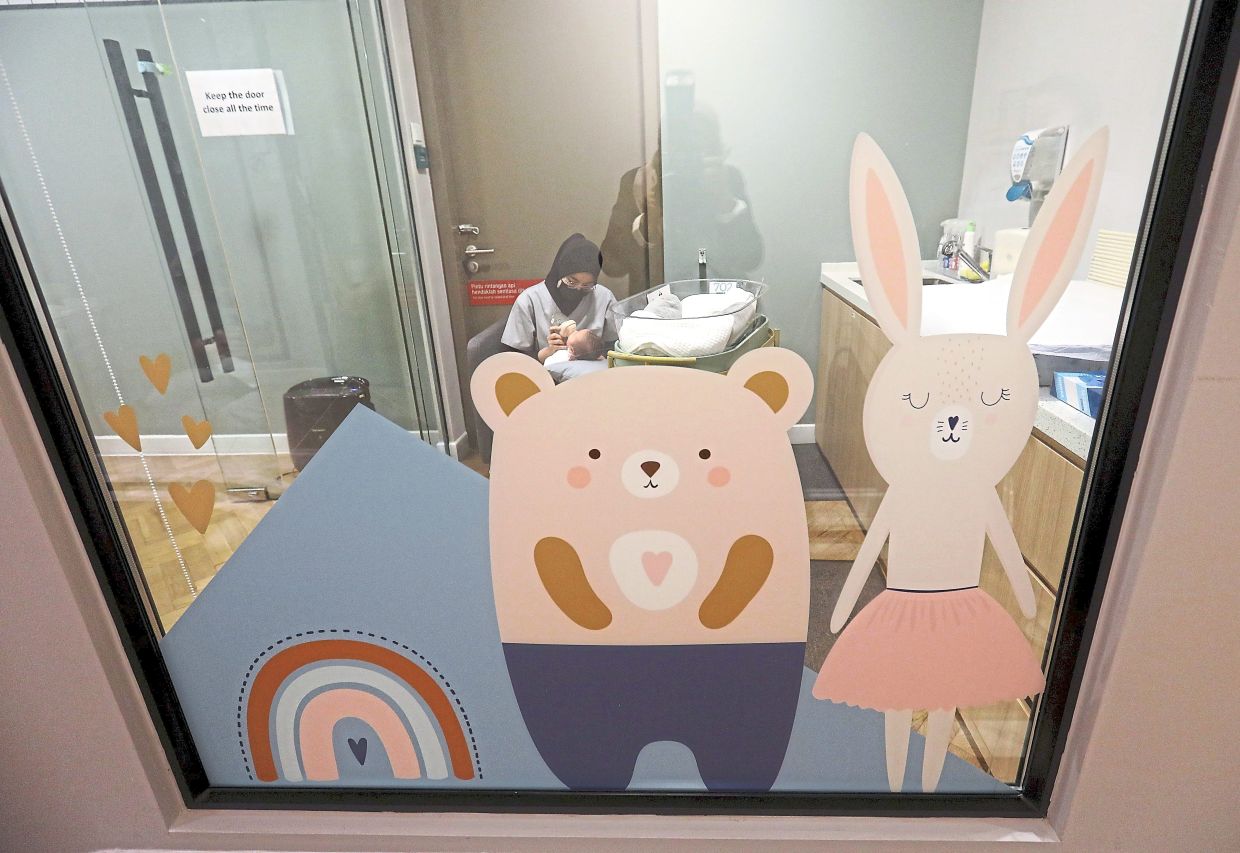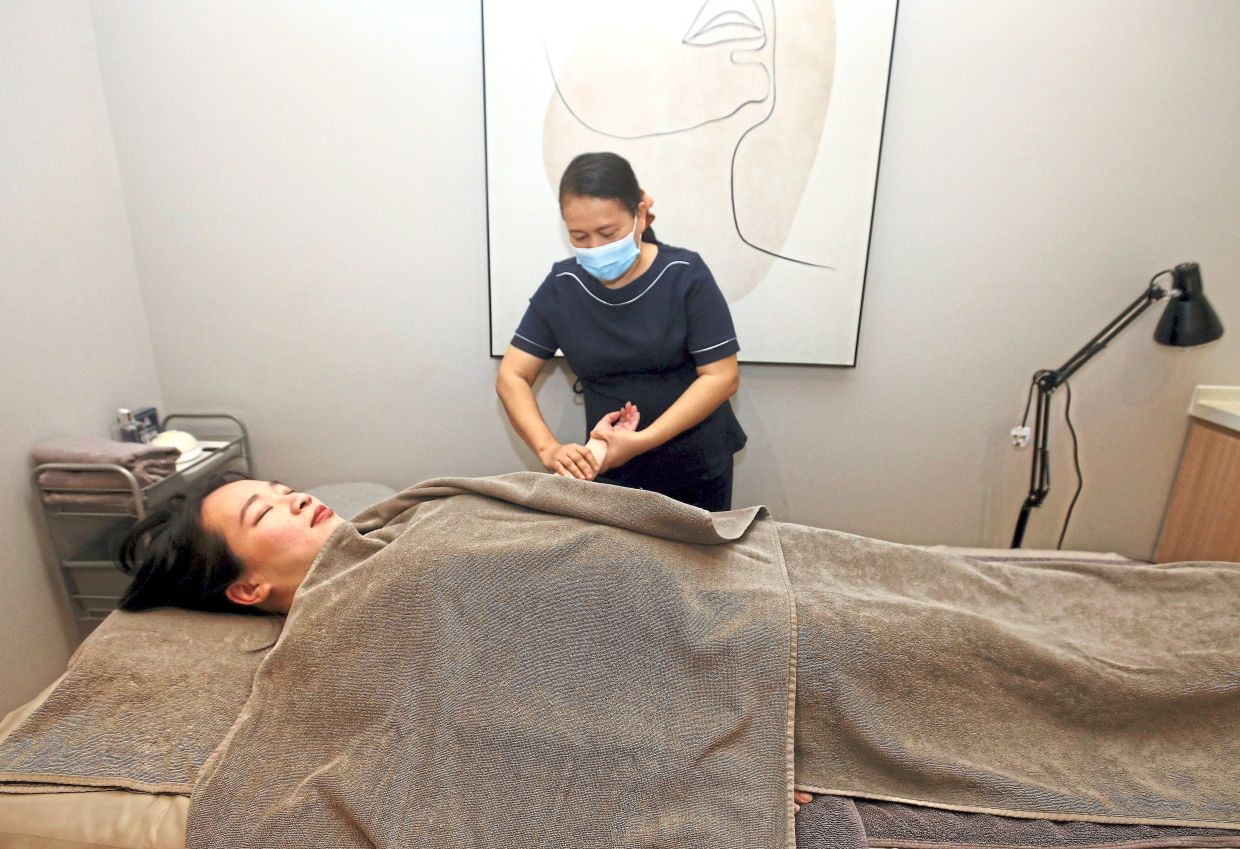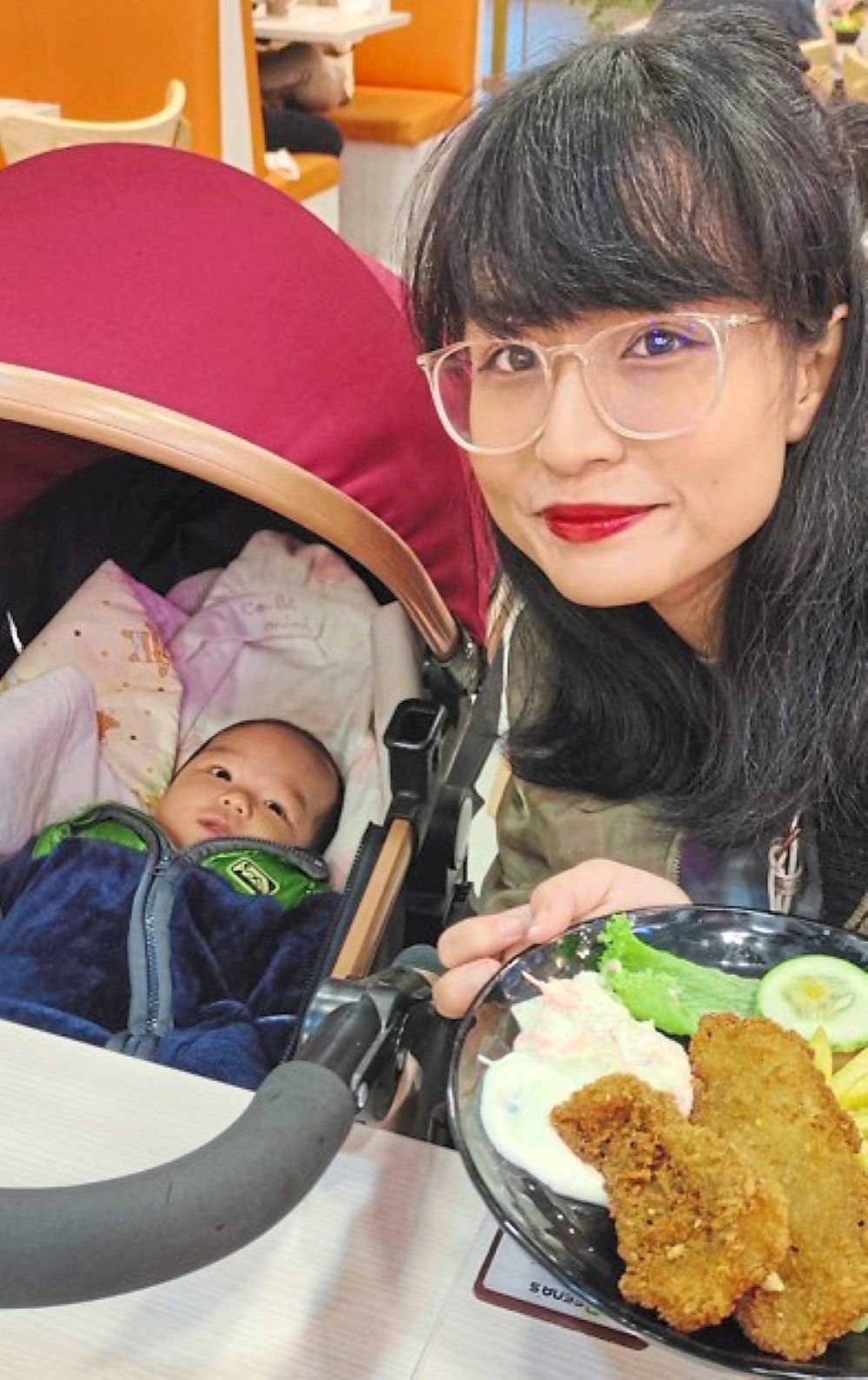New mother Valerie Voon chose to spend her postnatal recovery period at confinement centre.
When 28-year-old Raja Alisya Raja Fajar gave birth to her daughter via a complicated C-section, she found herself unable to get out of bed, let alone care for a newborn.
“My incision was a J-cut into soft tissue, so even simple things like walking or sitting up to nurse my baby were difficult,” she recalls.
For the first few weeks, she breastfed lying down and relied entirely on her mother-in-law and grandmother-in-law for support.
It was a physically and emotionally intense period, but she considers herself fortunate.
Her confinement was lovingly managed by her mother-in-law, a health coach, who oversaw her nutrition, rest and recovery.
“I couldn’t go for traditional massages right away because of the stitches, but we adapted.
“During that period, warm compresses and herbal baths helped me ease the pain,” she shares.
Her confinement meals, too, were a careful blend of tradition and practicality – nutritious yet simple enough not to burden her caregivers.
She drank red dates and longan tea to help boost milk production, relied on protein shakes for breakfast, and avoided overly heaty or heavy dishes.
“As long as I was getting the nutrients I needed, my doctor said it was fine,” says Raja Alisya.
Confinement is an ancient practice observed by various cultures, especially in Asian countries.
This postnatal period – traditionally around one to one-and-a-half months – is dedicated towards helping new mothers heal from childbirth.
In Malaysia, where cultural traditions run deep, confinement practices often involve dietary restrictions, herbal remedies, massages and avoiding exposure to “wind” or cold to prevent long-term health issues.
According to Sharifah Halimah Wan Omar, a 60-year-old confinement herbs specialist from Kuching, Sarawak, these customs are far from outdated.
“The pain, hormonal imbalance and swelling after birth require care and attention. Herbs play a major role in easing this process,” she says.
Having inherited herbal knowledge passed down through three generations, she now runs Rehanas Herbs, a small business offering a curated selection of herbal treatments for both internal and external use.
“There are herbs like air periuk that help the body heal and boost energy,” she explains.
“Others like tapal perut are applied to the abdomen and wrapped with a bengkung (postpartum belly binding with a long piece of fabric around the abdomen, from the hips to ribcage).”
But it’s not just about what’s consumed or applied – it’s also about discipline and support.
“Mothers must avoid lifting heavy items, cold drinks and certain foods that can trigger bloating or slow healing. And emotional support from the family is vital,” Sharifah Halimah adds.
Nutrition plays a crucial role in the healing process post-delivery.
Nur Hanie Mohammed, founder of Ringkat Mama Confinement Meals in Kuching, Sarawak, has made it her mission to craft postpartum meals that fuse tradition with nutritional science.
“The body undergoes trauma during childbirth. It needs protein, vitamins, and minerals to rebuild and rebalance,” she says.
Her menu includes kacangma chicken (ginger and sesame oil chicken), ikan singgang (fish in tamarind soup), and herbal steamed chicken, each designed to enhance blood circulation, reduce inflammation and support breastfeeding.
But not all her dishes are traditional “confinement food”.
Her honey ginger grilled chicken, for instance, was created to combat taste fatigue while still delivering healing benefits.
“It’s nutritious and comforting, and helps prevent mothers from feeling like they’re eating the same food every day,” she explains.
Nur Hanie also supports some food taboos during confinement.
“Brinjals, long beans and certain tropical fruits can be high in histamines or hard to digest, especially for a body that’s still healing.
“Shellfish are bottom feeders and may contain toxins.
“There’s logic behind many of these prohibitions,” she says.
“These aren’t just old wives’ tales – they’re observations-turned-wisdom.”
This combination of scientific understanding and cultural heritage is what more Malaysian mothers are embracing today.
While some may discard older rituals like not washing their hair, they still recognise the principles behind them.
Carmen Ng, a mother of two, understands this well.
“In the past, women avoided hair washing after giving birth because there were no water heaters. It made sense. Now we have the means to adapt,” she says.
At the confinement centre where she is staying, postnatal care was personalised.
Meals were diverse, featuring both traditional Chinese dishes and Western-inspired options like grilled chicken or pasta.
“I didn’t want to feel like I was eating from the same restaurant every day,” she jokes.
“And here, I had options – as well as two soups and a tonic every day!”
Activities such as yoga and music or art therapy, group support sessions, and even DIY classes using breastmilk to make baby soap, helped foster a sense of community and healing.
“It’s not just about rest. It’s a time to emotionally process this huge life shift,” Ng reflects.
“Some mothers cried during therapy. Others just needed space to breathe.”
For today’s mothers, the postpartum journey is not a one-size-fits-all.
Some continue to observe strict traditions at home, whether cared for by family members or confinement ladies, while others opt for professional help at modern centres offering full-service recovery packages.
Valerie Voon, a 39-year-old mother of two, went through her confinement twice at a professional facility.
“It’s more convenient,” she says.
“While there’s nothing wrong with having a confinement lady, it would be too tiring and stressful for just one person to manage the cooking, cleaning, baby care, and attending to the mother 24/7,” she opines.
With trained nurses working in shifts at the centre, she feels safer, knowing that there is always someone alert and capable on hand, especially at night.
“Back in the day, our mothers did the best they could with what they had.
“But now, resources are available to make things easier and safer,” she adds.
“For instance, with an emergency C-section, recovery is much harder.
“Here, I can rest, get postnatal massages, and still bond with my baby without overexerting myself.”
At these facilities, mothers typically have structured routines: breastfeeding every two to three hours followed by meals, light art or music therapy, yoga sessions, massages and lactation support.
“It’s almost like a second womb for the mother,” Voon muses.
“You’re cocooned so you can heal before returning to the outside world.”
Having experienced a difficult confinement period herself, Katrine Cheong – founder of Little Precious Postnatal Care in Kuala Lumpur – wanted to create a space where new mothers could feel supported, nourished and understood.
“I grew up around traditional Chinese medicine (TCM) – my father was a TCM practitioner,” she explains.
“But when I had my first child, I couldn’t afford proper confinement food or herbs.
“By the time I had my second child and felt weakness in my body (when carrying the baby), I realised how much these practices matter.
“Postnatal care needs to be comprehensive – from TCM consultations and customised herbal tonics to physiotherapy and pelvic floor strengthening.
“While ancient traditions are still relevant, it’s important to adapt them to make them accessible and relevant for modern mums,” she says.
Additionally, mental health support is crucial.
“Postpartum depression is real and it’s vital to take this into account in postnatal care.
“Because of many factors - including hormones and postpartum fatigue - some mothers may feel overwhelmed, experience intense sadness and be prone to anxiety or anger. It’s important to help them through this by ‘giving more love’.
“Start by helping them manage what stresses them out first. Sometimes, it can be something as simple as lacking confidence in cleaning and changing the newborn’s diapers that triggers them.
“This is why proper care and support is so necessary post-delivery,” she explains.
As more Malaysian women advocate for autonomy and care in their postnatal journeys, traditional confinement care isn’t disappearing. It’s still relevant but evolving to suit modern times.
Whether at home, with a confinement lady, or at a centre, mothers are increasingly combining tradition with modern living.
There’s now even home-based care models offering rotating professional teams – nurses, cooks, therapists – so mothers can rest without being isolated from family.
“It’s all about customisation,” says Cheong. “The point is to support the mother in a way that suits her lifestyle, culture and recovery needs.”
For mothers like Raja Alisya, that support made all the difference.
“I couldn’t have done it without my family,” she says. “It may not have been the most traditional route, but it was the best one for me.”
At the heart of confinement lies one simple truth: after bringing a new life into the world, mothers deserve the time, space and care to recover – and to be rebirthed themselves, concludes Cheong.







